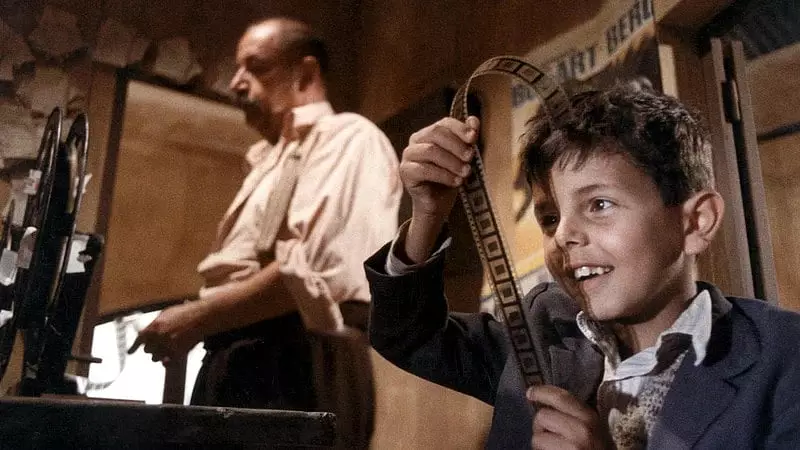
Childhood represents a magical period filled with discovery, adventure, and imagination that shapes our entire lives. Certain literary works have managed to capture this extraordinary phase with such authenticity that they remain beloved across generations. These stories don't merely entertain young readers but profoundly understand the complex emotional landscape of growing up.
The Magic of Childhood Through Literary Lens
Great children's literature transcends simple storytelling to become windows into the childhood experience. These books validate children's emotions, acknowledge their struggles, and celebrate their unique perspectives. The most enduring classics share a remarkable ability to speak honestly about childhood's challenges while preserving the sense of wonder that defines this precious time.
Six extraordinary books stand out for their authentic portrayal of childhood in all its complexity. These literary masterpieces have earned their timeless status by resonating with both children and adults, offering insights that remain relevant regardless of how many years pass since their publication.
Six Unforgettable Journeys Into Childhood
1. The Harry Potter Series by J.K. Rowling
J.K. Rowling's phenomenal series begins with Harry Potter's discovery of his magical heritage at age eleven. The books masterfully chronicle his journey through adolescence at Hogwarts School of Witchcraft and Wizardry. What makes the series extraordinary is its honest portrayal of childhood and teenage experiences—friendship, loss, identity formation, and moral choices—all within an enchanting magical framework.
The series understands that childhood involves navigating complex emotions and difficult decisions. Harry's adventures resonate because they mirror universal growing-up experiences, just with more magic and mythical creatures. Rowling created a world where readers see their own struggles reflected in Harry's journey toward adulthood.
2. The Jungle Book by Rudyard Kipling
Rudyard Kipling's classic collection of stories introduces us to Mowgli, the human child raised by wolves in the Indian jungle. The narrative explores profound themes of belonging, identity, and the delicate balance between nature and civilization. Mowgli's journey to understand where he fits—neither fully animal nor immediately comfortable with humans—captures childhood's essential quest for self-discovery.
Through memorable characters like Baloo the bear and Bagheera the panther, Kipling creates a rich tapestry that examines the rules governing different worlds. The story remains powerful because it speaks to every child's experience of learning societal rules while developing their own moral compass.
3. Pippi Longstocking by Astrid Lindgren
Astrid Lindgren created one of literature's most iconic independent child characters in Pippi Longstocking. With her superhuman strength, unconventional living situation, and refusal to attend school, Pippi represents childhood freedom and imagination unleashed. She lives without adult supervision, follows her own rules, and approaches life with boundless creativity.
Pippi's adventures with her neighbors Tommy and Annika showcase the limitless possibilities children imagine when unconstrained by adult conventions. The character has become a symbol of empowerment, encouraging children to trust their capabilities and embrace their uniqueness without apology.
4. The Story of Amrita
This powerful tale based on true events tells the story of Amrita Devi and the Bishnoi community's sacrifice to protect trees in 18th century India. When the king's soldiers arrived to cut down trees, Amrita declared they would have to cut off her head first. Her courageous act inspired 363 Bishnoi villagers to similarly sacrifice their lives protecting their natural environment.
The story introduces children to profound concepts of environmental conservation, courage, and standing up for one's beliefs. It demonstrates that childhood understanding of right and wrong can be remarkably clear and powerful enough to inspire entire movements.
5. Charlotte's Web by E.B. White
E.B. White's masterpiece explores friendship, mortality, and salvation through the relationship between Wilbur the pig and Charlotte the spider. The story begins with Fern saving Wilbur from being slaughtered because he's the runt of the litter, then follows Wilbur's barnyard life and his deepening bond with the wise spider Charlotte.
The novel gently introduces children to complex themes like life cycles and loss while celebrating loyalty and the impact one life can have on another. Charlotte's creative efforts to save Wilbur showcase how intelligence and friendship can overcome seemingly inevitable outcomes, offering children both comfort and wisdom.
6. The Little Prince by Antoine de Saint-Exupéry
Though often categorized as a children's book, The Little Prince offers profound insights for readers of all ages. The story follows a pilot stranded in the desert who meets a mysterious prince from another planet. Through their conversations, the book explores essential truths about love, friendship, responsibility, and the importance of seeing with the heart rather than just the eyes.
The Little Prince's observations about grown-ups and their peculiar priorities perfectly capture childhood's perspective on adult behavior. His journey through various planets reveals how different people understand what matters most in life, reminding readers to preserve the wonder and clarity of childhood perception.
The Enduring Power of Childhood Stories
These six classics continue to captivate new generations because they honor childhood's emotional truth. They don't talk down to children or minimize their experiences. Instead, they acknowledge that childhood contains moments of courage, fear, wonder, and resilience that shape who we become.
The most successful children's literature understands that growing up involves navigating complex emotional territory. These books provide both mirrors that reflect children's own experiences and windows into different ways of being. They validate young readers' inner lives while expanding their understanding of the world.
From Harry Potter's magical coming-of-age to Amrita's environmental bravery, these stories demonstrate that childhood represents far more than just preparation for adulthood. It's a distinct and valuable phase of life filled with its own wisdom, challenges, and triumphs. These timeless classics remind us to preserve that childhood perspective—the ability to see wonder in ordinary things and courage in difficult circumstances—throughout our lives.





